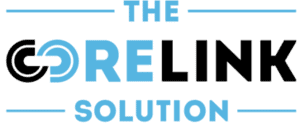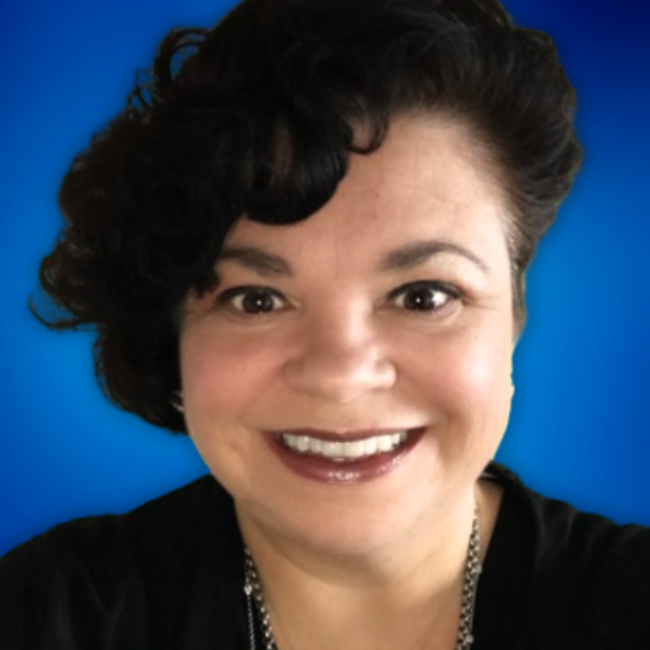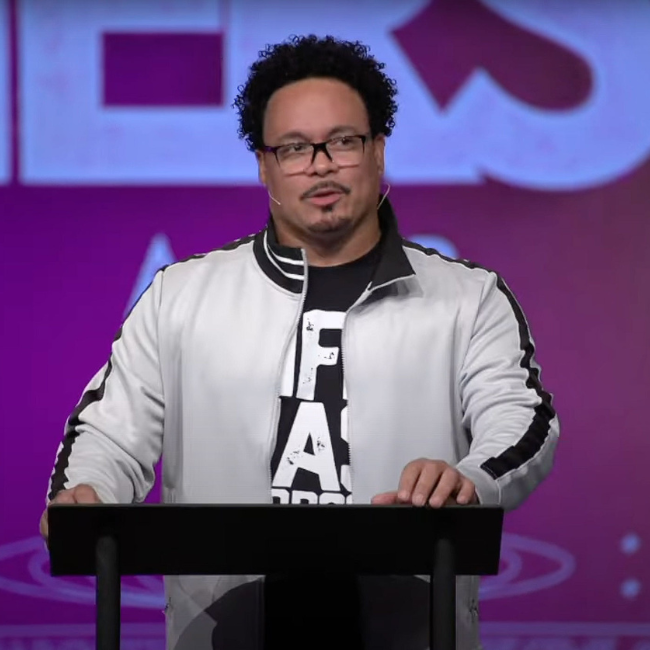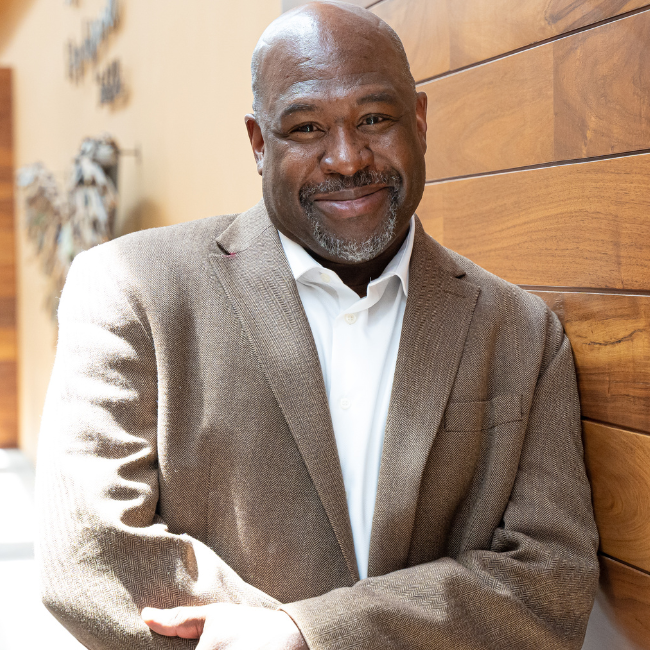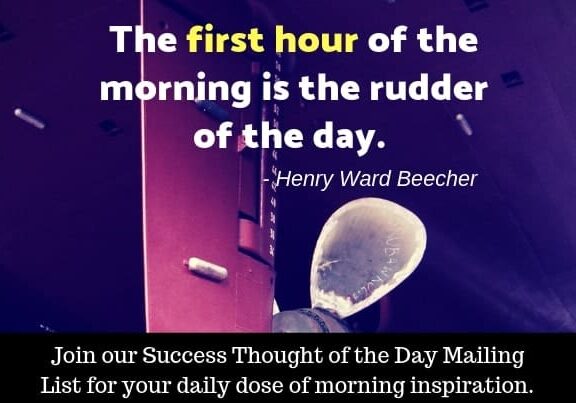Episode 31: Finding clarity in your biggest vision with Jaclyn DiGregorio
Subscribe: iTunes | IHeartRadio | Spotify | Stitcher
What happens when you don’t know your purpose or your “why” from the onset? Many get stuck in a cycle of doing nothing, but that doesn’t have to be the case. Jacklyn is a great example of starting from “I know what I do not want to do” and taking action.
During the episode, Jaclyn shares how to use experimentation to dial into your passion and purpose. She discussed the power of mindset, how important it is to keep you moving in the right direction and provides tips to help you move forward. Lastly, she shares how she creates balanced goals with her clients that keeps them energized today and over the long haul.
Topics Covered
04:35 – Jaclyn discusses that there was not a transformative moment that helped her start her business, but that she figured out what she did not want to do. Further, she shares that often, we hear other people’s stories and believe they know their “why” from the onset and if we don’t we get stuck. It is important to take the first step on what do you know and what can you do with that information.
06:51 – Jaclyn discusses how her first business, the C.U.S.P. method, came to life.
08:00 – Jaclyn shares how she transitioned into her second business, business coaching, which became her niche and where she found her purpose.
11:25 – Jaclyn talks about her openness to change and our potential need to reframe how we look at things and not trying to “have it all together” all the time because we are constantly evolving.
12:25 – How Jaclyn handles the challenge of being a “younger” speaker in the market relative to the audience that she is speaking to. It comes down to knowing your value.
16:30 – How Jaclyn helps her clients define success and shares a story about one of her clients who noted that her change in mindset was the largest contributing factor to her success.
20:30 – We discuss some of the things that you might need to stop doing that may be getting in your way. As an example, one of the most common is complaining. To shift that, can you find a way to find gratitude, particularly in the midst of bad things happening?
24:30 – Jaclyn shares how she continues to sharpen her saw.
Key Takeaways:
- If you can’t find your passion/purpose from the onset, experimentation is a great way to find what you want to do. Take the first step with ‘What do you know and what can you do with that information?”
- The power of mindset: It is incredibly important to keep your mind focused on the “right” things. Learn to lean more towards gratitude and away from complaining? Consider what things do you need to stop in order to allow yourself to succeed?
- Goals: Having a long-term view of huge goals that are in sight but out of reach that keep you constantly stretching, complemented by short-term goals that you can achieve along that way that keep you motivated.
Resources Mentioned
Connect with Jaclyn
Connect with James Rosseau Sr.
- mailto:jamesrosseau@thecorelinksolution.com
- www.thecorelinksolution.com
- YouTube
Biography
Jaclyn DiGregorio is a business coach, speaker, and best-selling author. As the founder of Clarity and Action Consulting, Jaclyn helps women build successful businesses so they can positively impact their family, their community and the world. At age 21, Jaclyn started her first business from her dorm room at Georgetown University. Jaclyn has been featured by Forbes, Elite Daily, Bustle and Washington Business Journal, and her book has been featured on Good Morning Washington.
Full Transcript
James: Welcome to another episode of the Corelink Solution and I’m pleased to welcome on this episode, Jaclyn Digregorio. She is a business coach, speaker and bestselling author. As the founder of Clarity and Action Consulting, Jaclyn helps women build successful businesses so they can positively impact their family, their community, and the world. At age 21 Jaclyn started her first business from her dorm room at Georgetown University. Jaclyn has been featured in the Forbes Elite daily bustle and Washington Business Journal and her book has been featured on. Good morning, Washington. Please join me in welcoming Jaclyn Digregorio. Welcome to the Corelink Solution.
Jaclyn: Thank you so much for having me here. It’s such an honor.
James: Oh, I’m so glad you’d be in here. So how are you doing today?
Jaclyn: I’m doing great.
James: And where are you today?
Jaclyn: I am just outside Philadelphia.
James: And is that where you’re from originally?
Jaclyn: Yes. I grew up in a small town in the suburbs and only left to go to college. I studied abroad one semester in Italy, in Florence and I moved back home after college wanting to be close to my family and my roots, which is really actually a big part of my story because I’m so close to my family. And one of my passions is to build financial freedom so that I can help my family, not just now but for generations. And that also spurred my passion to help other women because I realized a lot of women who were building businesses just like me had similar why’s, they want it to pay off their sister’s house or get their parents out of debt or be able to give back to their community. And that’s such a strong why for me. And so it makes sense why I live in the same place that I grew up because it really means so much to me.
James: Absolutely. What, what suburbs of Philly?
Jaclyn: I’m in Delaware County.
James: Yeah. So, I grew up in Philly and we lived out in Aldan for quite a while.
Jaclyn: Oh, not too far from me.
James: Yeah. I resonate. I was, well, and you know, I grew up in North Philadelphia, so Germantown and Hunting Park area and I really wanted to help change that economic landscape. So many people come from a very tough and humbling economic beginnings, right? And so when you figure out a breakthrough, you want to figure out how to go back and not only give a person a temporary leg up, but figure out how to kind of change that foundationally. So I see that’s been a part of your journey. Before we jump into some of the great things you’ve been doing, tell people something maybe they would never know about you, normally.
Jaclyn: Ohhh. That’s a good one. Well, I have a fun fact that I always like to tell people when they ask for a fun fact. My voice that you currently hear is not the voice I was born with and it’s kind of funny because it’s very telling of who I grew up to be. So, when I was three years old, I talked so much that by the end of the day, every day, I completely lost my voice. My parents were so worried about me, they were like, there’s something wrong with her. So, they took me down to CHOP (Children’s Hospital of Philadelphia) and they did like all these tests on my vocal chords and they found that I grew these big polyps on them because I was talking so much, no straining my vocal chords.
James: Right.
Jaclyn: So they said that the polyps had actually changed my voice because my vocal chords weren’t really working the way that they normally were supposed to. And so my voice became sort of raspy. The voice that you hear now. And they told my parents that if they want it, when I became like fully grown as an adult, I could go in and have surgery to remove the polyps, but I never did. And I think it’s kind of special that I have this voice because as a speaker I love to share my message with others and share my voice. And so it is really telling for me that a lot of things are innate and you kind of grow up to be the person you are meant to be and I really feel that way about my voice. So I’ve turned something kind of silly into something that’s really meaningful for me and I, I am so committed to using this voice to help others and also to help others find their voice because everyone has something they’re passionate about.
James: Oh, that’s awesome. Awesome story of turnaround. So you know, your statement when I look at across your materials is pretty clear. Helping female entrepreneurs find clarity in their biggest vision and take action on it to make it a reality. What led you to that? And part of it you talked about … was your family. What was the transformative moment, right, that made you kind of really doubled down and commit on this for you as a business?
Jaclyn: Yeah. So I like to really go back and tell the story of the real struggle because I don’t want people to listen and think like, “oh look at that,” and compare themselves to me and feel like they could never, you know, find that clarity and get to where I am today. Because it really took years of trying to figure it out. So my story goes back to my junior year of college. I was a marketing and international business double major and I thought that my dream at the time was to get a corporate job. Something that I kind of heard growing up. Like you know, the best thing is job security and get a job in corporate America and that’ll be a great life. And so I thought that that would be exactly what I wanted and I landed a corporate internship after working really hard to get it. I thought, okay this is it. Like my hard work is finally going to pay off.
And while I enjoyed it and would only speak highly about the company I worked for, looking back about maybe a month or two in, I got really bored and I realized that my idea didn’t matter. No one cared what the entry level intern thought about how we could grow the business or thought about how we could improve a process or a system. And I was just such a visionary. I just had so many ideas that were flowing out of me. I couldn’t even focus on the work in front of me because I just wanted to improve things and do things better and more innovatively. And I realized at that time, the only thing I could realize, which was I don’t want to do this. So I think that when you hear someone’s story and you hear like my why and all these things, you might think that I knew that like from day one and sure I can take you back to my childhood and say that I knew that I wanted financial freedom and, and I didn’t want to struggle the way I saw my parents struggle.
But other than that, I thought I could get that from a corporate job and I thought I could get that a lot of ways, it wasn’t like this was so clear for me. So all I knew at the time was I didn’t want to do that. So if you’re listening to this and you feel like you’re in a position where you don’t have it all figured out and you’re confused, just take the first step on like, okay, “what do you know and what can you do with that information?” So that’s what I did and I decided I’m going to start a business. I didn’t know what type of business, I didn’t know how. So I went back to college for my senior year and I started writing journals every day about ideas I had, anything I could possibly come up with.
A lot of the ideas were really stupid, but I didn’t judge any of them and I just kind of let myself free flow. And finally I came to the conclusion that something at that time that was really close to my heart was eating disorders, body image, nutrition, diet. Because that’s something that I had struggled with when I was in college a couple of years prior. And so I thought, well, what if I could help other college students be healthier and have a healthier relationship with food and be more confident, especially women. And so that’s where I started and I had a fantastic opportunity with a professor to write a book. And so that’s how I wrote my first book, which is called “The Cusp Method”, and it’s all about nutrition, especially for college students.
And so my first business, and you could sort of call it first business, second business, one business that transformed, you know it’s a whole messy road, however you want to depict it. But it was focused around health and that was my current passion. And I did that for about two years. And what happened was as I started to really focus on what I was good at and my strengths and what would actually help me make money, because that’s what a business needs to survive. I got booked for a lot of speaking engagements because I was pretty much a natural public speaker. And then once I did it quite often I got better and better at it and I learned how to really perfect that craft. And as I was speaking about food and diet and all these things, I started to lose my passion for it.
Not that I don’t care about being healthy, but I had struggled with those issues so many years back that it didn’t feel as close to my heart. And what really felt close to my heart was entrepreneurship struggle because I was living it. And what would happen is I would talk about how being more confident and being healthier allowed me to follow my dreams, which were to start a business. And I would have people in the audience come up to me and say, well, how did you start a business? Can you help me? And so I started to venture just a little bit into business coaching and try it and I really found my niche and I found my why through that. But it was a long journey and it took years and it wasn’t until I really started just doing it and being in the arena and trying things and failing and getting back up that I really found my passion and I found what I was good at and I feel like I found my purpose.
So I think that’s really important to share because right now I’m really clear and I’m clear because I went through the things that I teach and in every venture I’ve been in, in every area of business, I’ve always taught something that I could personally relate to. Because if you’re working with someone in any capacity, whether it’s a product or service and they have a problem, if you can’t relate to the problem, that’s going to be really hard for you to build a genuine connection and really solve their problem. And so that’s why I do the work I do now because I struggled so much my first couple of years in business and I needed that clarity in those action steps and I didn’t have the right guidance, but it did take lots of trial and error and just figuring it out and trusting the process to get here.
James: You know what’s so funny is you know, one, how you talk about getting into business. The point of your work in the internship and you’re feeling like you’re being underutilized, your ideas and such aren’t being taken advantage of. And so that puts you in this mode of entrepreneurialism…let me go out and use myself. So one is, you know, the resistance or lack thereof, usage puts you there. So, one note to employers, we’ve talked before about entrepreneurs inside the company and the uses of that. That you should take advantage of that because this is a classic example. Right here is somebody who is innovative, has entrepreneurial spirit, and how you can use them as an intrapraneur, right? But then to taking a problem and while you’re working through a problem, using that as a business opportunity, right?
And then as you work through that you find another problem and while you work through that problem, using it as a business opportunity. And what’s so interesting is the level of passion now that you talk about clarity, how clear you are right now. Now I’m a little bit older than you are. You’re still in your twenties, I’m in my forties, so I love hearing you say “I’m crystal clear right now.” I can’t wait to talk to you five years from now to see if the level of clarity you feel you have now and conviction to this moment right now and this particular business holds for another three or four years because we continue to evolve. Right?
Jaclyn: Right. And honestly, I know it won’t because I believe that change is good and if I continue to evolve, like my audience is growing with me. So when I have children, I might talk about running a business while having children. I might talk about, you know, different life struggles that I have no idea what I’m going to face because I haven’t faced them yet. Maybe health and maybe other things come back and so I’m so open to the journey and I think that the clarity on the why is really just like, why I’m here right now. It might not be why I’m here in a year or five years. And that’s actually a good thing. And I think if we can reframe the way we look at it, then maybe we won’t feel so much pressure to have it all figured out all the time.
James: No, that’s exactly right. You know, one of the thing, and I just touched on this a little bit, let’s dive into this, right? And I’ve seen this happen in the corporate environment. A lot of times when you have younger leaders take over a team, one of the biggest points of apprehension is when they look across their team, they see people who are older than them and they go, “Oh God, they’re not going to give me the proper respect or they’re not going to follow my lead,” because you know. How do you handle that? When you go into a room and you’re speaking to, you know, a couple hundred women and oftentimes, just so people understand the view of speakers, it’s easier to talk to a crowd of 300 then it is a crowd of 15. Okay. At least that’s my personal opinion, right? Because if 15 is sitting like right there staring at you, and so when you have those older women who look at you and go, here’s this 20 something year old. Right? How has that experience worked for you?
Jaclyn: Yeah, I’m really glad you brought this up because it’s definitely an insecurity that I’ve struggled with when getting booked to speak, speaking to event planners, conference directors who are two or three times my age and maybe immediately I’m feeling like, “Oh, they’re not going to respect me,” which is not true. In fact, a lot of times they think it’s fantastic that I’m so young and have accomplished so much and they want to bring a young perspective into the equation. And on the opposite, if you’re listening to this podcast and you feel like I’m too old, they also want a perspective of someone who has years of experience. They want it all no matter kind of what it, no matter what you’re doing essentially in any environment, it’s good to have a range of perspectives.
So it was something that I had to overcome in terms of just putting myself out there and confidently speaking with people who were older than me, who had more authority than me. Knowing my value, knowing what I’ve accomplished and being confident in that. And then the second thing going into the room, it’s a lot harder. And sometimes I find that actually a lot of women are open, but sometimes I speak to coed crowds even though my target is women. Like I spoke at a conference a couple months ago and it was just a coed crowd of business owners and there were some men probably in their like late fifties and they’re listening to me and a lot of stuff I talk about is mindset and how the power of your mind and believing and the law of attraction and all these like crazy things, you know, they’re looking at me like I am just crazy. And I’m thinking like, and then I get this competitive nature inside of me and I’m like that man in the second row or that woman in the third row, I am going to convince that person that what I’m saying up here is true. And I just go up there with so much passion and I just pour myself into what I am speaking about. And by the end of it I usually get a smile, a head nod, and maybe just one thing I said will resonate with them. And I have to understand all of the research and work I’ve done understanding human beliefs. Because I really believe that like much of our business success is rooted in our habits, which are rooted in our identity and your identity forms so young, it’s been challenging for me to make identity changes at 24 it must be even harder for someone to make them at 40 or 50 or 60 so I can imagine that some of the people in the audience can’t even comprehend the level of subconscious beliefs they have that have put their life on this sort of autopilot path and they don’t even recognize it.
So, I try to be really open and understanding of the perspective that they may be listening from and think, “how can I say something that might resonate with them?” I make sure that my speech is always about them and not about me, because it’s about what they’re going to take away and how they can change their life. It’s not about what I’ve accomplished or who I am, that doesn’t even matter.
James: So well said. Know your value. You know, when you think about the folks you serve, the women you’ve helped, think about their businesses, their biggest vision and helping put it into action. What’s the success story or two that comes to mind that you’re most proud of?
Jaclyn: Yeah. So success is interesting in and of itself because what is success and what do we define it as? Everyone has different goals and I think that the women that tend to work with me, that I guess I would say I attract them in a sense. They connect with my energy, they will never reach success because their dreams are so big…and this is what I hope for them. I truly hope this for all humans, that we dream so big that at 90 years old, 95 years old, we’re still working towards them. It doesn’t mean that your dreams have to be colossal and overwhelming. So sometimes I get asked like, what if my dream is to be a stay at home mom? Or what if my dream is to, you know, just work a job and retire? There’s nothing wrong with those dreams.
They’re also dreams about how can you be the best dad? How can you show up for yourself and those around you the best way you can and constantly self-improve and live outside of your comfort zone? So I would say that one of my measurements of success is how are you living outside of your comfort zone on a daily basis? And if you are, then you’re succeeding. However, I will say that with my clients, they set goals on a 90 day and yearly basis. So a lot of them do achieve their 90 day goals or one year goal, but they’re still working towards a bigger goal. Right. And so one of my favorite stories that I think is so powerful is one of my clients. Her name is Katelyn and she has a social media agency and she started this right out of college. It really resonates with me because she’s very similar to me and my nature is a hustler and someone who works really hard to the point where it’s very damaging.
It causes me burnout, it’s very unhealthy, its actually like sabotage in my business, and so one of the things I really teach is about knowing that working more hours isn’t going to get you the thing you want. It’s about your mindset. It’s about prioritizing, it’s about a lot of other things. And so that’s a message that I really hone in on, especially for other women that I find I attract who are also hustlers. And so Katelyn reminds me of someone who is a hustler and her goal was hitting $5,000 a month in her business. She was working really hard towards this and she finally hit it last month and on a call with her, I said, “what do you think was the number one thing that helped you at your goal? Just curious!” From my perspective, like you know, we do so much in my programs. I teach strategy, I teach mindset, we create action plans, we do accountability, and we have that community.
There’s so many pieces, I think all of them are important and her answer was, “mindset.” And I just wanted to take that answer and paste it on billboards and on rooftops because people don’t get it. Like they think that it’s just this arbitrary thing like yeah, be positive, they don’t understand how powerful it is. Because when you show up with the right mindset, you show up differently, you connect with people differently, you copy differently, you send emails differently, you have conversations differently. That energy is what ends up putting you in the right places, giving you the right opportunities and it makes such a difference. So that’s something I’m really, really proud of because I want more people to recognize that yes, action is important and without action, we won’t achieve a thing. But mindset is just as important and I don’t think it’s talked about enough.
James: I couldn’t agree with you more on that, absolutely. Particularly having a growth mindset, continuously growing, evolving and being a lifetime learner. Absolutely. You know, one of the things I was looking at is your list of 18 things You Need To Stop. What a list! You know, I have it here. So stop complaining and start doing something about it. Stop letting other people’s opinion control your life. Stop playing a stage. Stop believing you’re not enough. Stop listening to judgmental people. This is a powerful list. I’m curious, as you’ve shared this information with people, what two or three have floated to the top most often?
Jaclyn: Yeah, I love that. So, this list is actually what inspired my new book that just came out, “Stop getting in your own way.” So, every chapter is something you need to stop doing in order to help you step into your highest potential, it’s particularly aimed towards female entrepreneurs, building their businesses and I have found that some of the biggest things that hold people back are some of the biggest areas that they feel resistance to, complaining is a huge one. People feel like they are the victim and they don’t even know that they’re complaining almost 24/7. I think that’s something that people can’t comprehend, is that when we talk about mindset and we talk about like letting go of negativity, it’s not about your circumstances. So if you can let go of negativity when things are going your way, that’s not enough.
How can you find gratitude when something bad happens, when you’re going through a really tough time or when it’s just that small thing in your day, that little thing after 20 other things, it just drives you crazy and makes you want to lose your head? How can you shift that? Because one of my favorite quotes that I live by is, “Life is not about what happens to you, it’s about how you react to it.” And it’s just the little things. The downs will never go away. You’re always going to get the call that someone’s sick, that someone died. You’re always going to get a bill that was unexpected. And if you can’t find genuine gratitude in your heating bill because you have heat in your home this winter, you’re just going to be miserable.
I find so many people have resistance to it. If you track how much you complain in a day verbally and also just in your mind consciously like, ah, I don’t feel like doing that. I don’t feel like going, you don’t feel like living your life, why don’t you just be dead? Like you have a life that’s right in front of you and people just drown in it. So that’s a big one. And then another big one that I see a lot is the caring what people think, that really holds people back. It just makes me sad that their whole life is sort of run by someone else in someone else’s opinion of them. It controls their every move. So with that one, something I recommend is trying to start small and doing little tests because I think of it as a muscle and if you can build up that muscle, of course we’re human beings, we care to some extent.
But if you can really put yourself first and your goals and what you know is going to be best for you first, more and more often it becomes easier and easier. So, I always tell people funny things. Like since I work with a lot of women, I ask them, “do you wear makeup all the time?” And a lot of them say “yes!” I’m like, okay, how about you go to the grocery store without makeup on this weekend? Oh, I would never do that. God forbid I see my … okay. And then you know, you might have someone who says, yeah, I’m fine doing that. And I’m saying, okay, have you ever gone to the grocery store in your pajama pants? Jaclyn, are you on drugs? What’s wrong with you? Of course I’ve been to the grocery store in my pajama pants because they’re comfortable and I’m not going to live my life.
Still concerned about what my neighbor thinks of me, right? If I’m comfortable and it’s going to make me happy, it’s going to put more joy in the world because I’m happy and I smile and I’m nicer to people and I am more generous and all these things happen because of that ripple effect, then that’s what’s best for me. And those are funny examples, but you can see it happens in your career so often you can’t stand up for yourself. You can’t make the right decisions, you can’t tell people the truth about their work. Give good feedback at, I mean it ripples and it is an avalanche effect. So if you can’t tackle this in small ways in your personal life, it’s really going to overflow to everything else and it’s going to be a big problem.
James: Yeah, those are good. Those are good. Your new book, “Stop getting in your own way”. I can clearly see so much thought went into it. Where is it available for people?
Jaclyn: It’s available on Amazon, both in Kindle and paperback.
James: As we start to wrap up. You know, I’m always curious, people like yourself who are out motivating others constantly giving out of their cup. How do you refill your cup? How do you sharpen your saw? How do you stay fresh?
Jaclyn: So glad you asked this because I think it is literally the most important thing. I used to not refill it at all, and I would go through phases, I would burn out. And for me, burnout literally feels like my body is almost sick, like very heavy. Like I have the flu or something like AP and I almost can’t get out of bed in the morning. And I’m like, “oh no, I don’t feel that.” I immediately know it’s burnout. It’s actually something that I faced since I was a child. And my mom said when I was really young, I would tell her I was sick, but she knew that I was just tired, like physically exhausted because I was the kid who played six sports in one season. So in recent years I was forced to learn how to manage this because what would happen is I would lay around for three days, feel better and think I could just go, go, go again.
And it just kept happening and happening and if I didn’t tackle this, it could have led to some really serious sickness. It definitely led to downfalls in my business for those periods where I just didn’t feel like myself. Sometimes it would last a month where I just kind of felt what I would call like a blob. I just didn’t have the energy. So one of the most important things for me is I’m being strict about my working hours and taking time off. I usually only work about four days a week, which I know sounds crazy, running a six-figure business with four employees and all these things going on, but I believe that it’s so important. Actually, one of the chapters in my book is called “stop working 80 hour weeks” and I use a lot of statistics that prove the longer you work over a certain amount of time, it just becomes pointless.
The predator principle says work expands to fill the time allotted. So we just tend to expand our time. So I find that four days is plenty of time to get my work done. I find that exercise really helps. It’s also another factor when you talk about working from home. While it’s really awesome, a lot of the time it can also be draining because first of all, you’re constantly in the same place. So you sleep in the same place that you work, that you live, that you relax and it kind of becomes just one mess of a day and it never really ends. Then you end up doing work at nine o’clock at night and all these things. So getting out of the house to work, just going to coffee shops and different things also helps me a lot in making sure that I actually take vacation.
As a business owner, I did not take real vacations, so I would go with my family. My family goes to the Jersey shore for a week in the summer and I would go, but I’d be like, sorry mom, I can’t make the beach, I have six calls. And she would actually be angry. She’d be like, “this is supposed to be a family time.” And I’m like, “but I’m running a business.” And so this year or last year in 2019 was the first time I took a real vacation and I told my clients I’m taking vacation, I am not having any calls. If it’s an emergency, I’m available for a message, that’s it. It felt great just to be detached and get away from my work. I think that if you’re a visionary in any capacity, whether you work in corporate, whether you’re an entrepreneur, a lot of your best work comes when you’re not working.
Like a lot of my best ideas are on a Friday night when I’m like journaling about something. So I really believe that the line between what’s work and not work is so blurred. Like I’ll be doing yoga and I’ll be like, that’s the best idea for a new offer. And I’ll be like, that was the best work I did in months. So I really think we need to like stop having these strict lines of what’s work and what’s not work and know that like personal development, exercise, all of that actually helps your work so much that in a sense it’s like you’re working and it’s time that you need. So don’t feel guilty about taking time away from work for those things.
James: Absolutely. Such an important message there. Such an important message. Well, you know, I want to wrap up and kind of recap some of the points you mentioned. The first one, just your journey and some of the points around your message of yeah, it’s awesome if you’re born and can find your purpose out of the gates, if you can identify that intersection of your gifts and talents. But you may have a journey that’s similar to Jaclyn’s, where you find a situation where you back into it and find something you want to do through experimentation. Finding other ways to get to what you want to do is awesome. To Jaclyn’s point around the power of mindset, it’s so important to keep your mind in the right place if you want to be successful and live successfully.
When she talked about your clients and how you think about success, having that long range view of these huge, big goals. And sometimes we talk about them having goals that are not out of sight but out of reach, right? You should always be stretching, pushing yourself, but then have short term goals that you can reach and knock out of the box. Then her last part around points to stop. Pick up her new book. “Stop getting in your own way”. Pick that up. But two points she talked about. Stop complaining, right? That’s really a self-defeatist mode. You are talking yourself down and out of success when you complain. Stop worrying about what other people are going to say. Just such great pearls of wisdom from Jaclyn Digregorio.
Hey, thank you for being on the Corelink Solution and we look forward to your continued success.
Jaclyn: Thank you so much James. I’m so excited to be here and I look forward to connecting with a lot of the audience.

